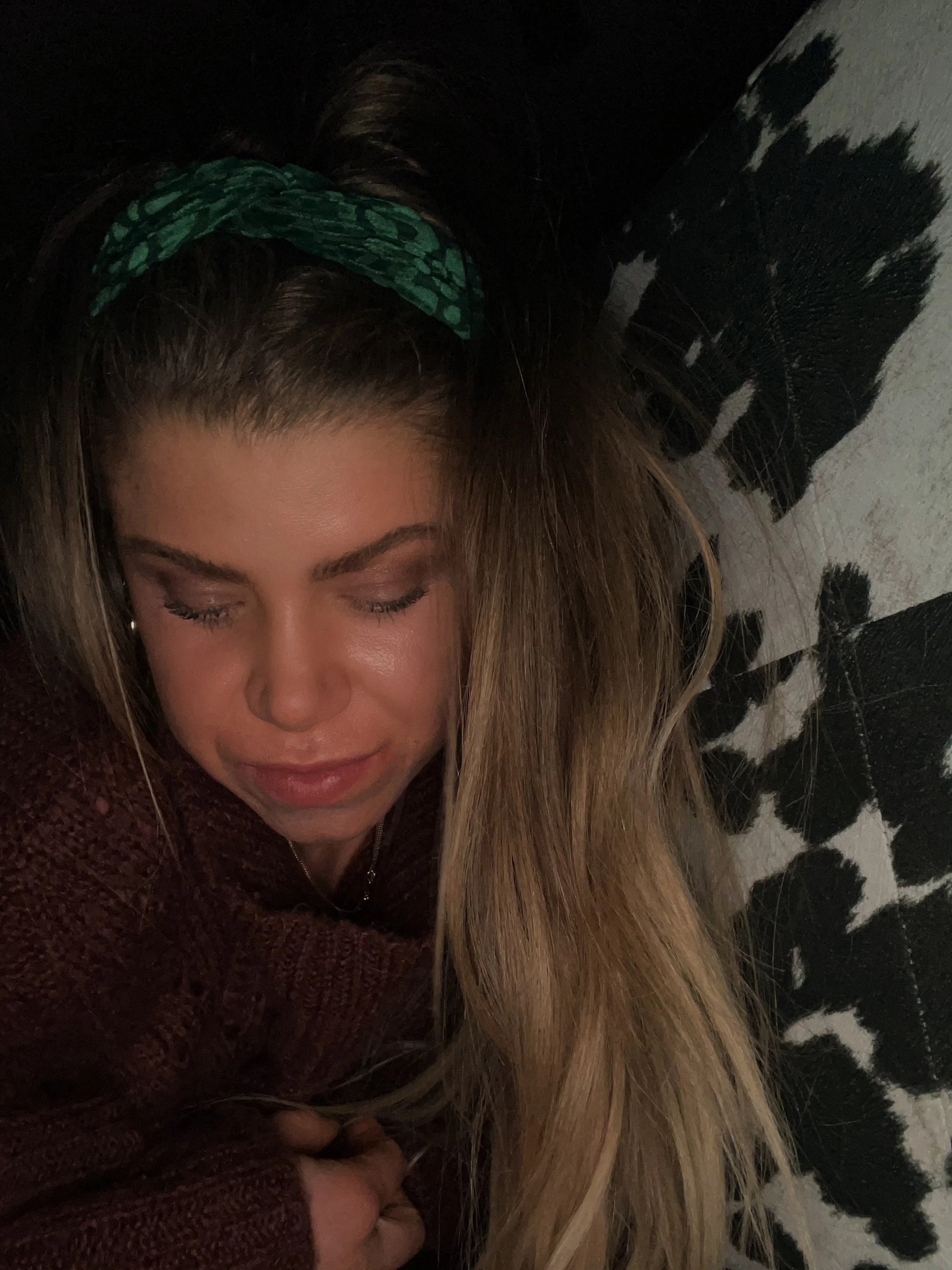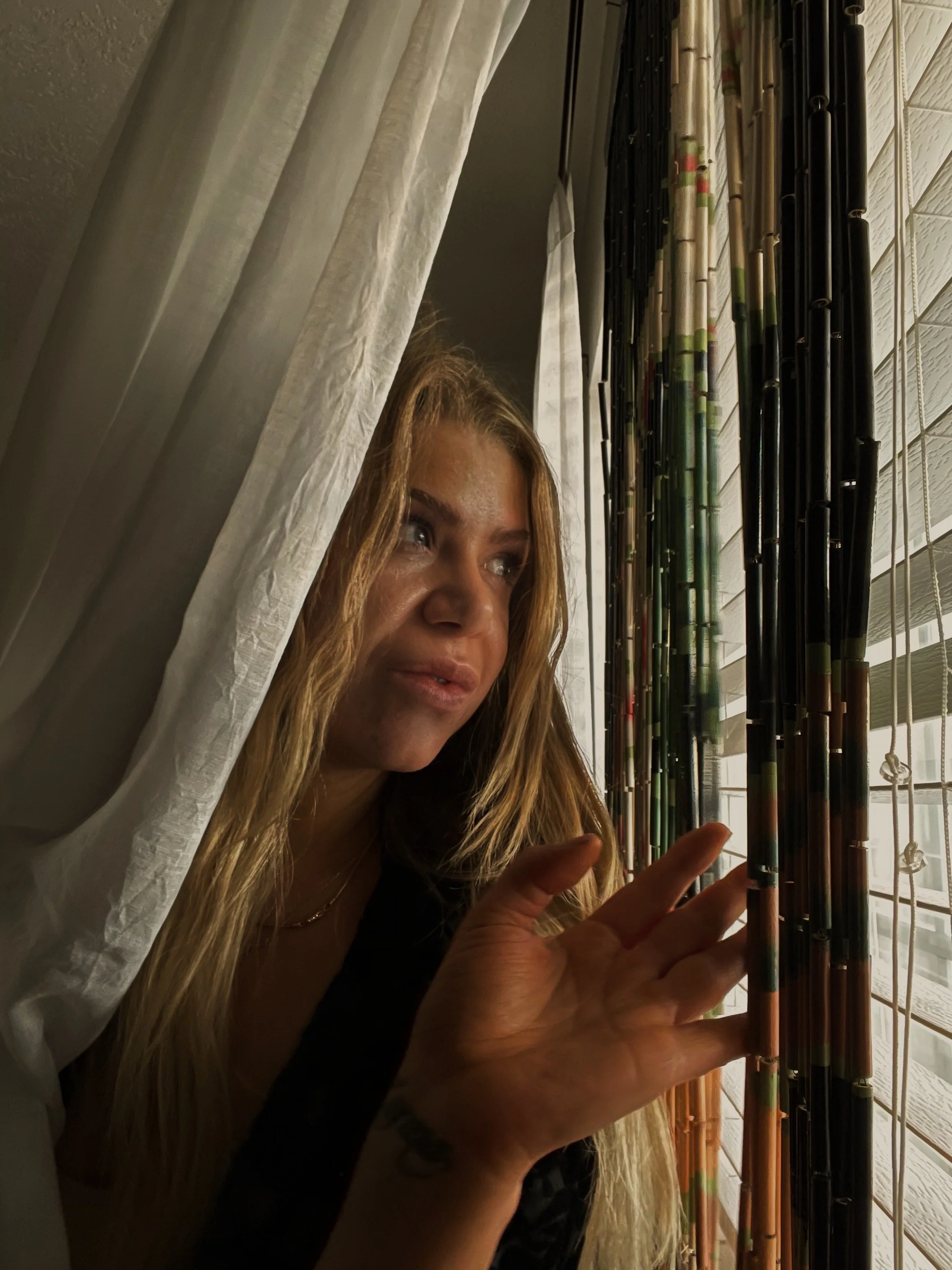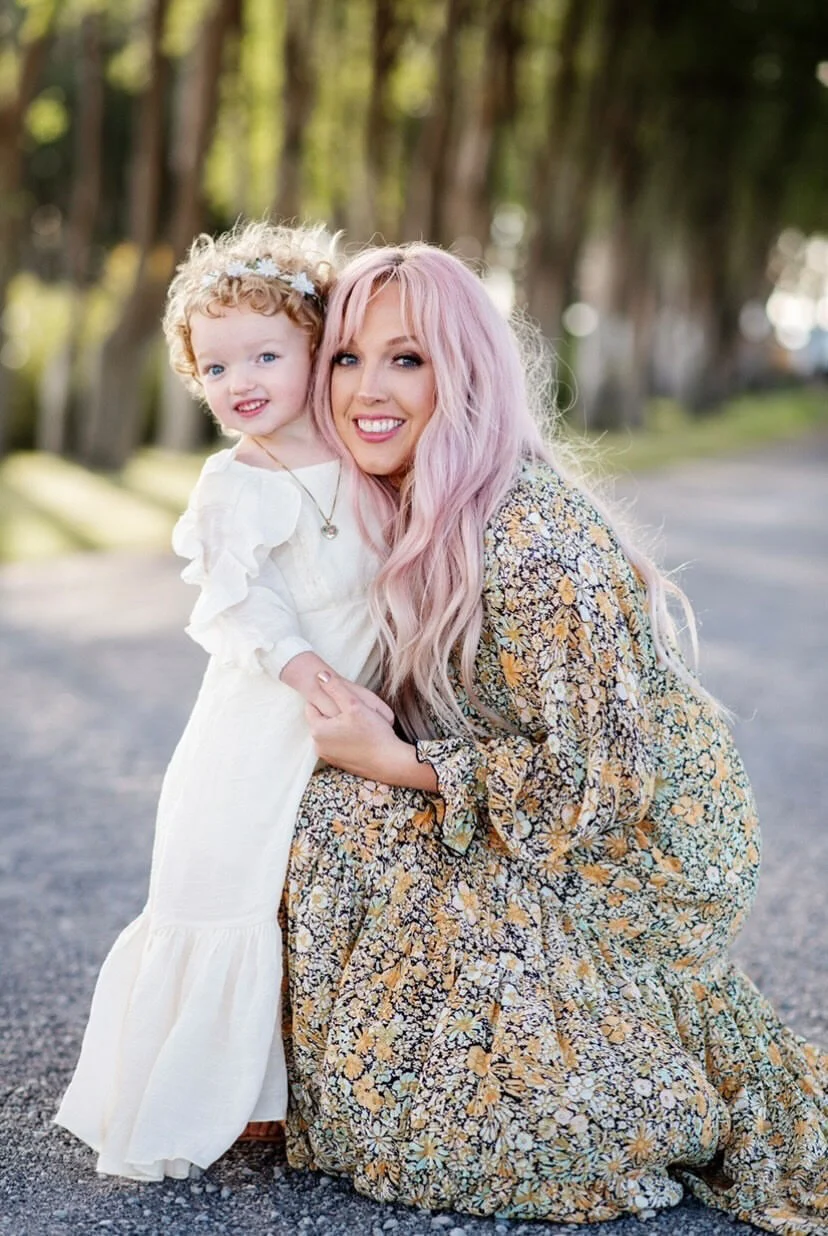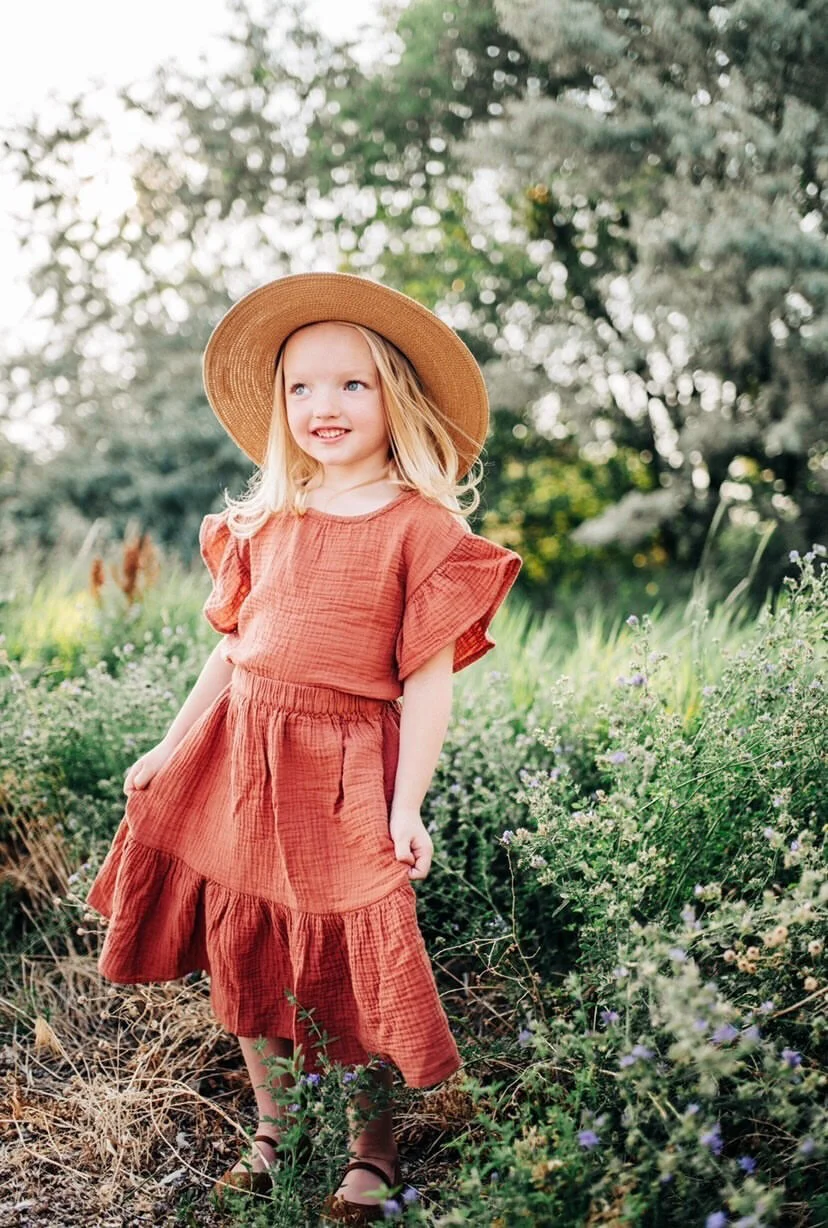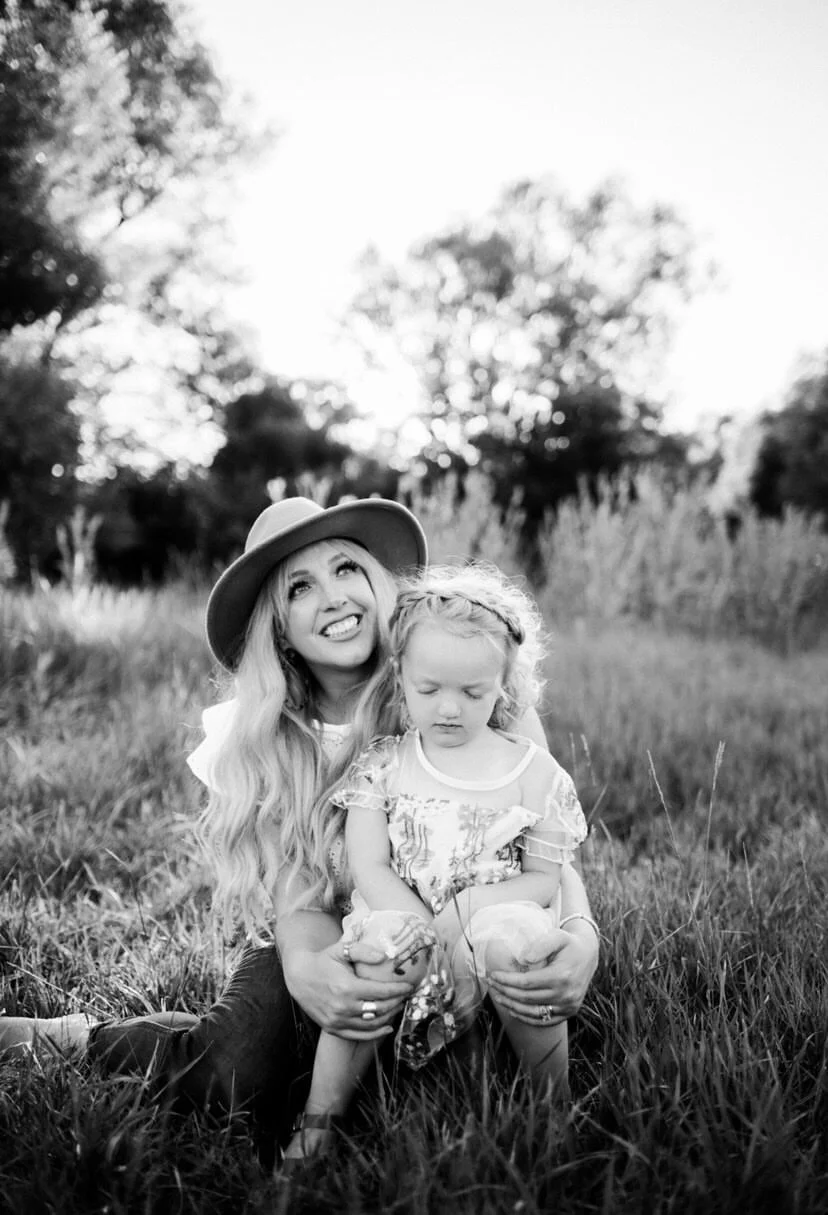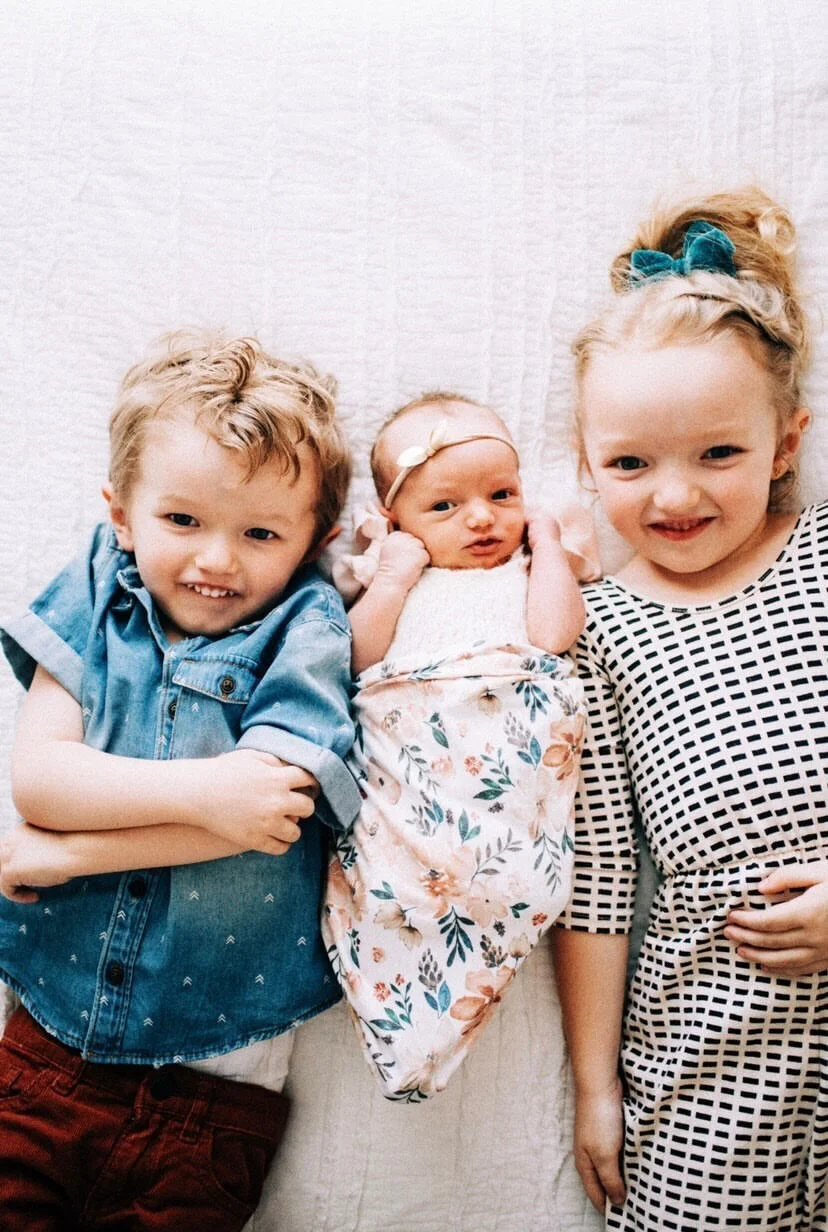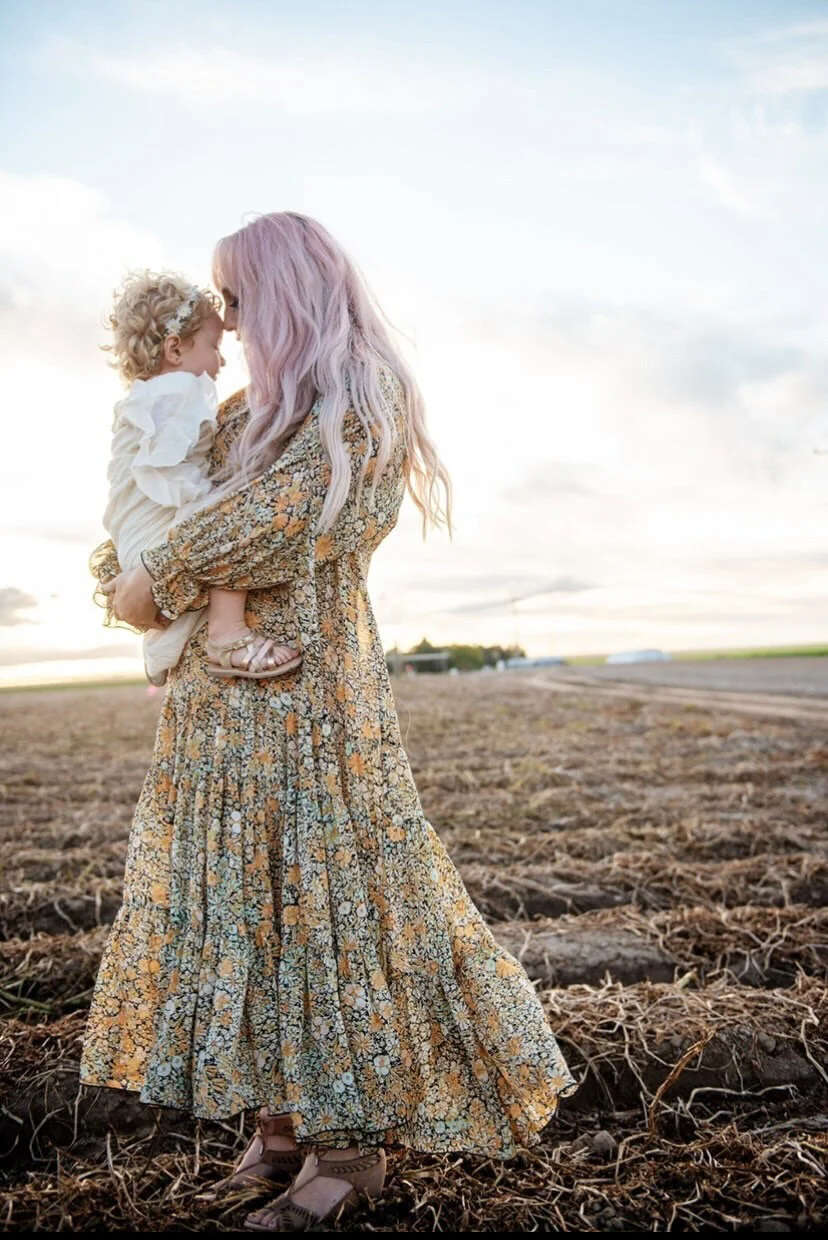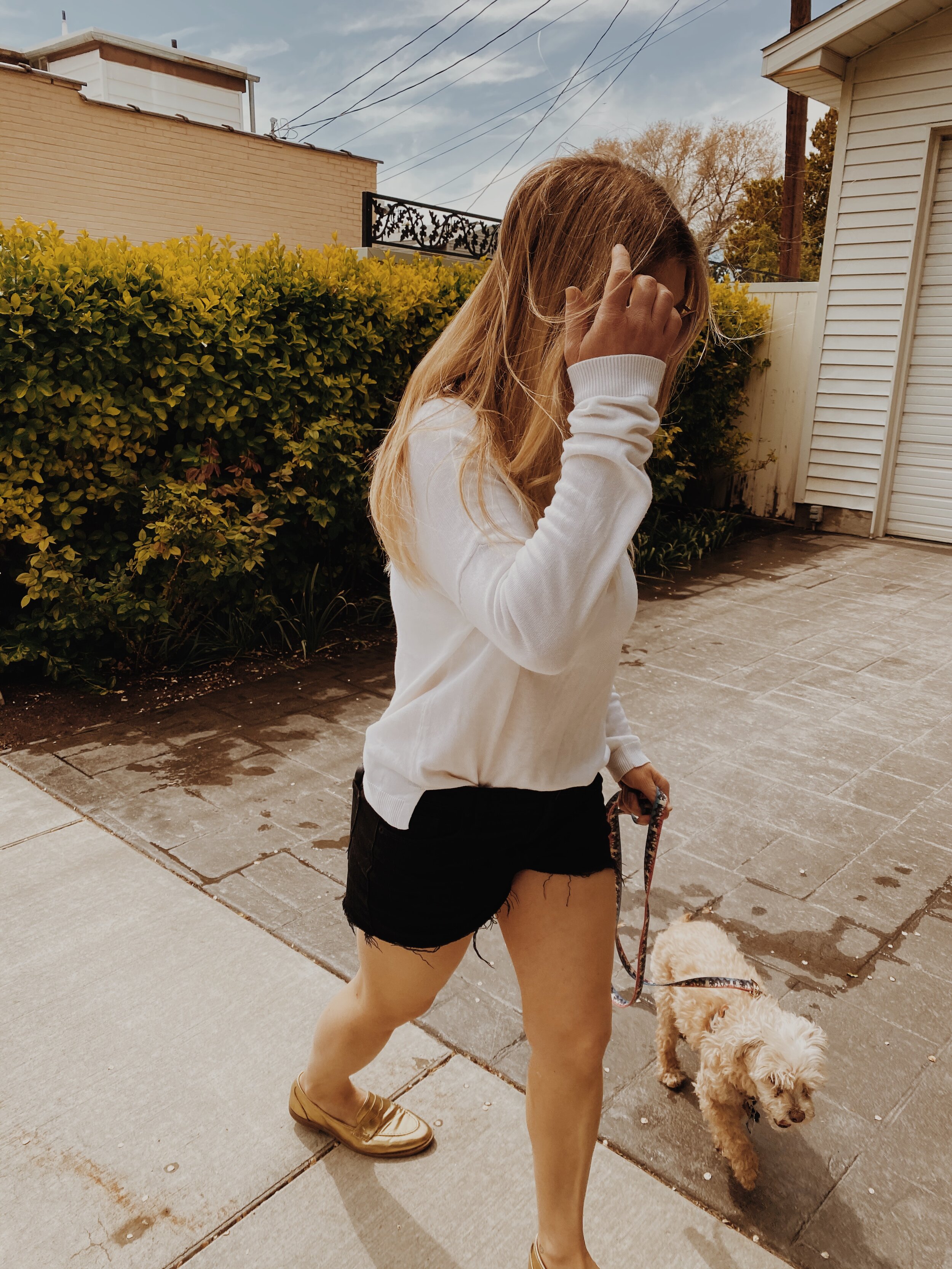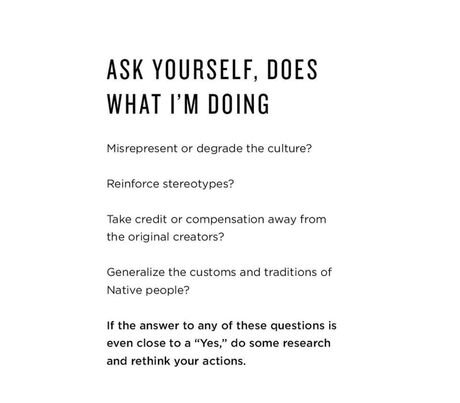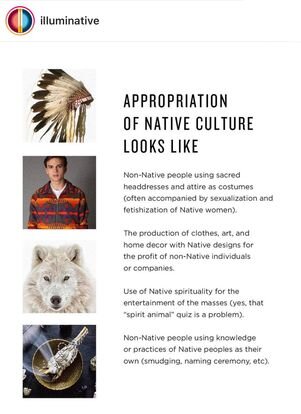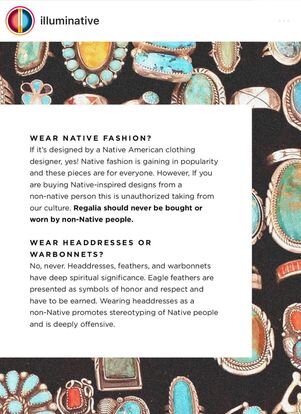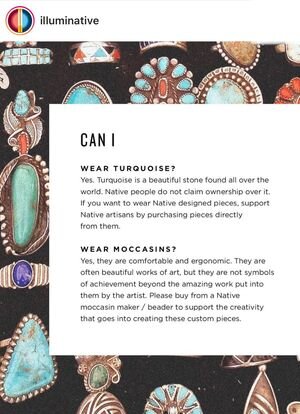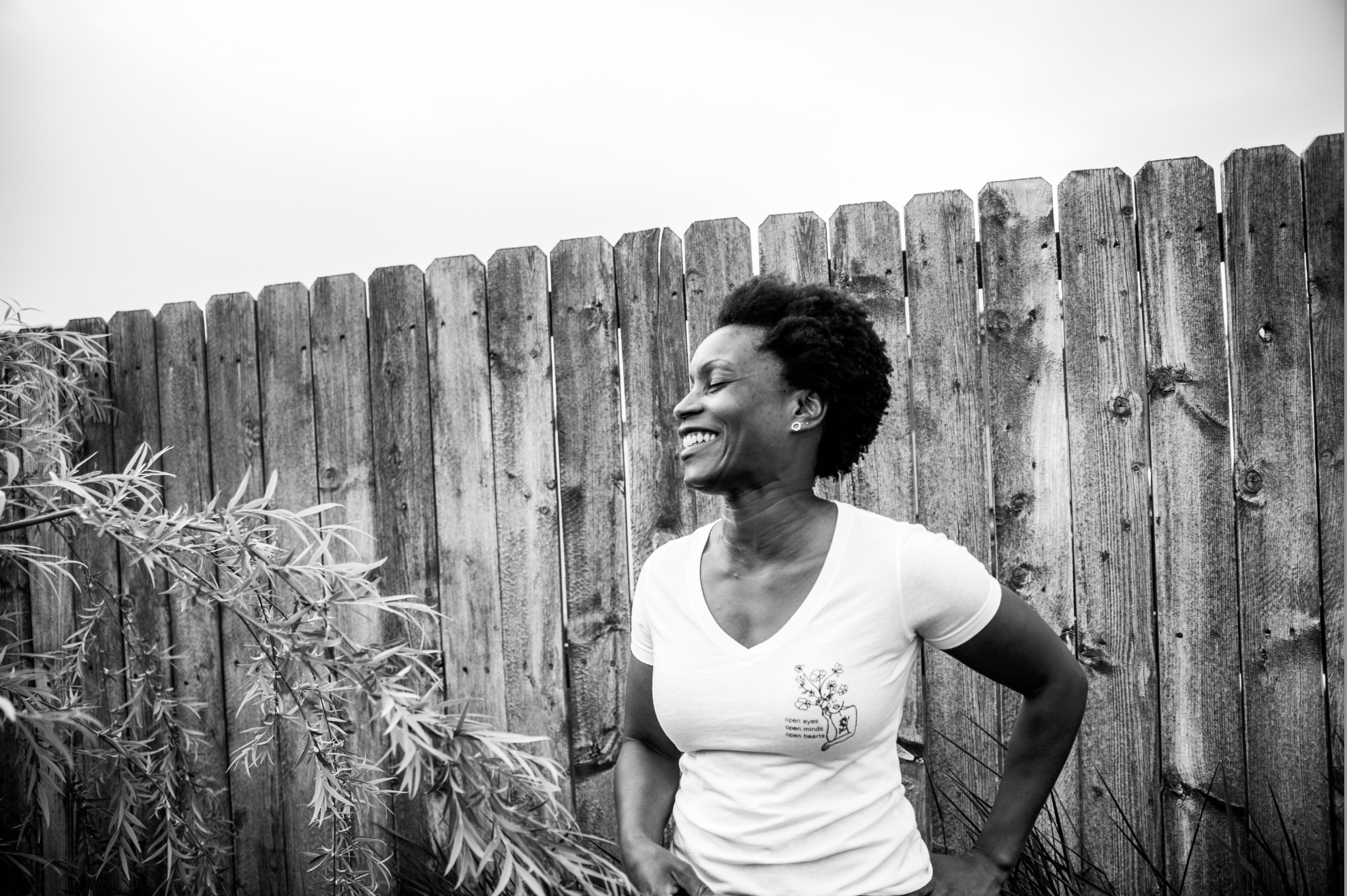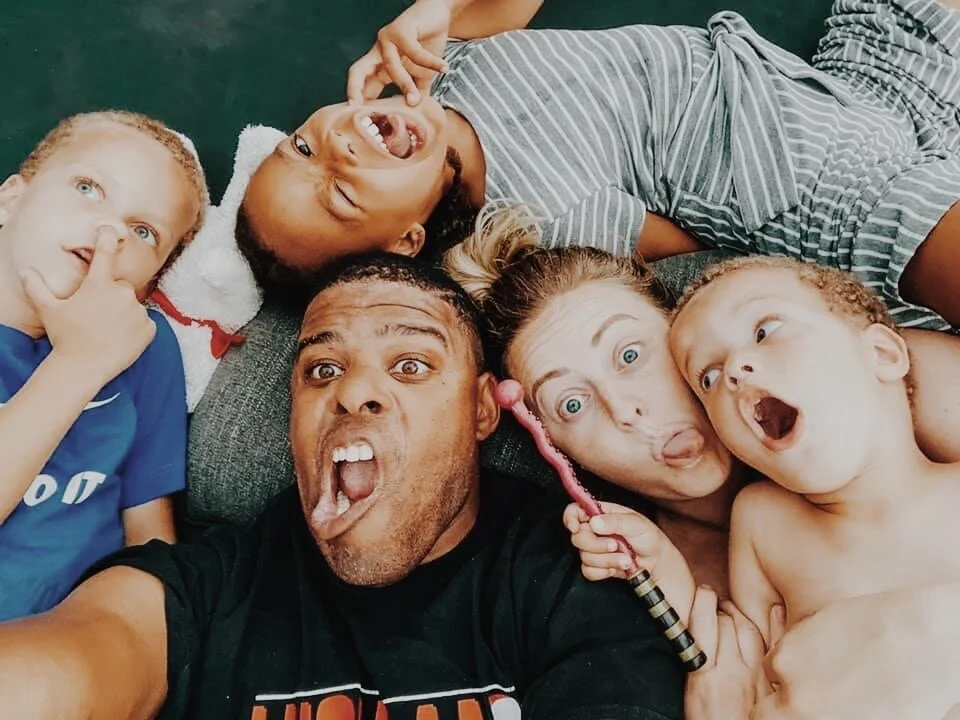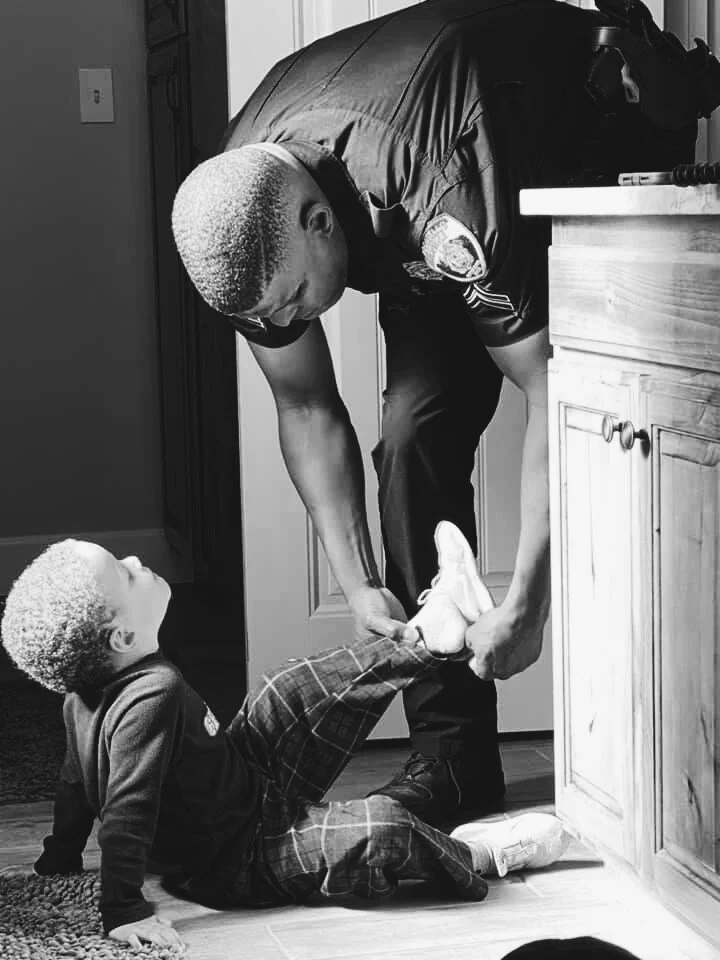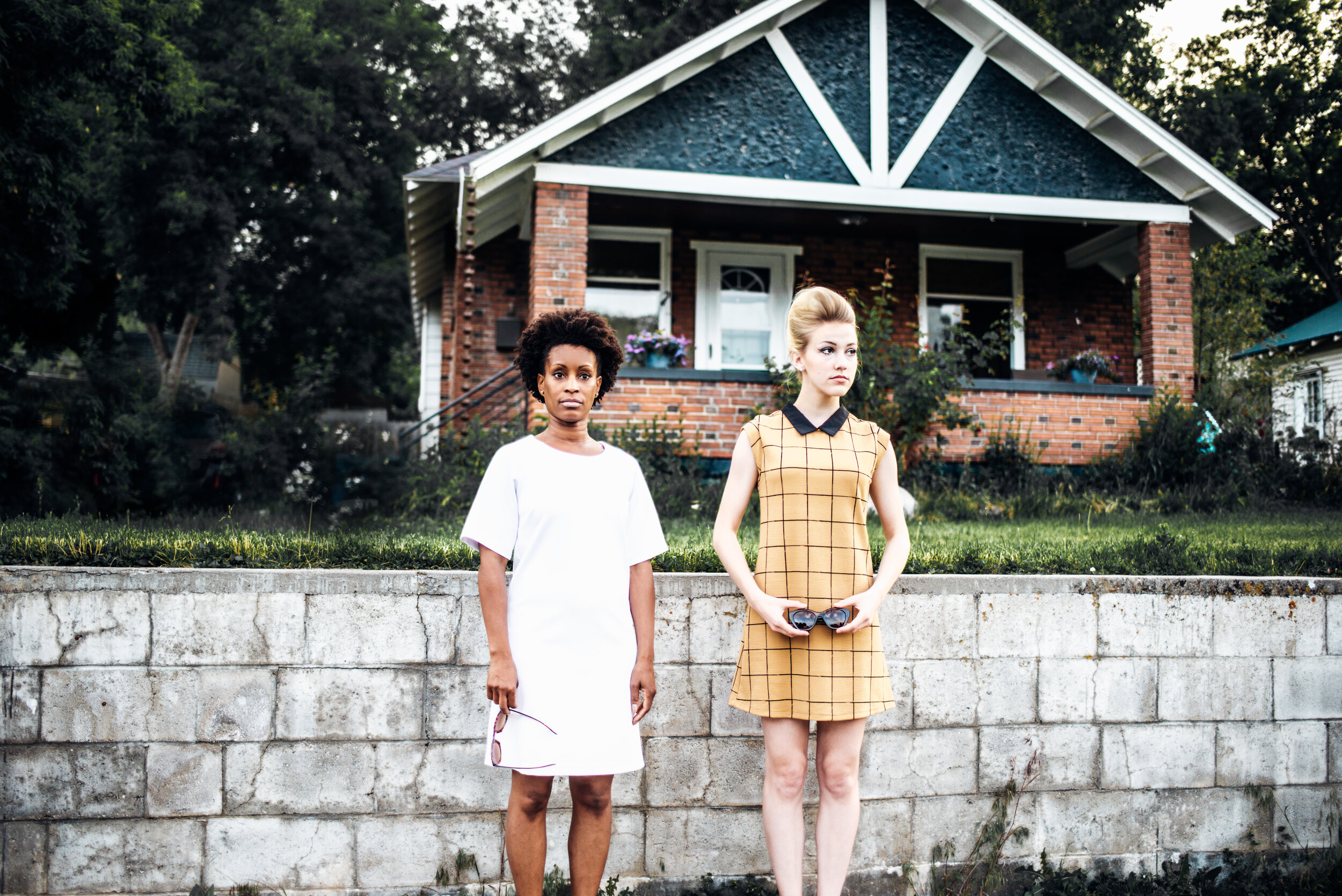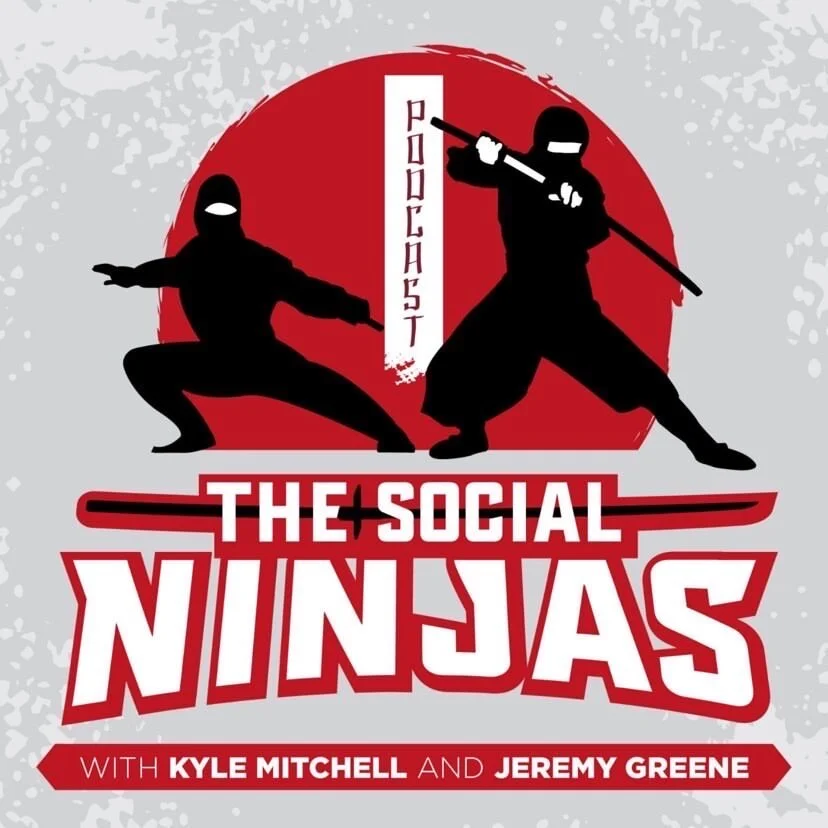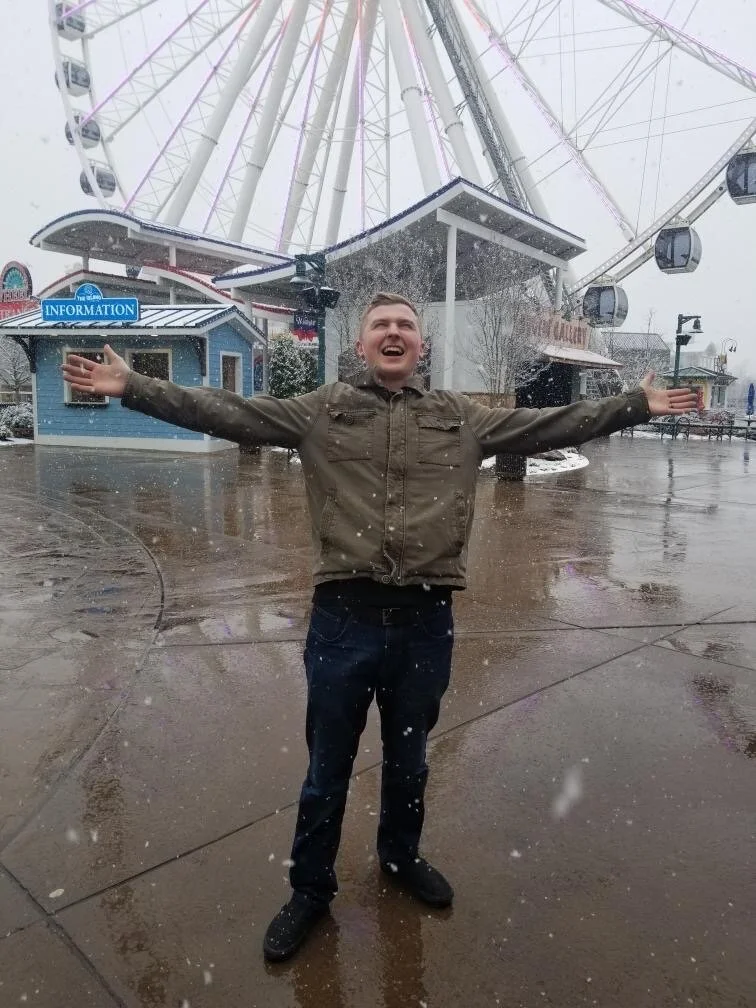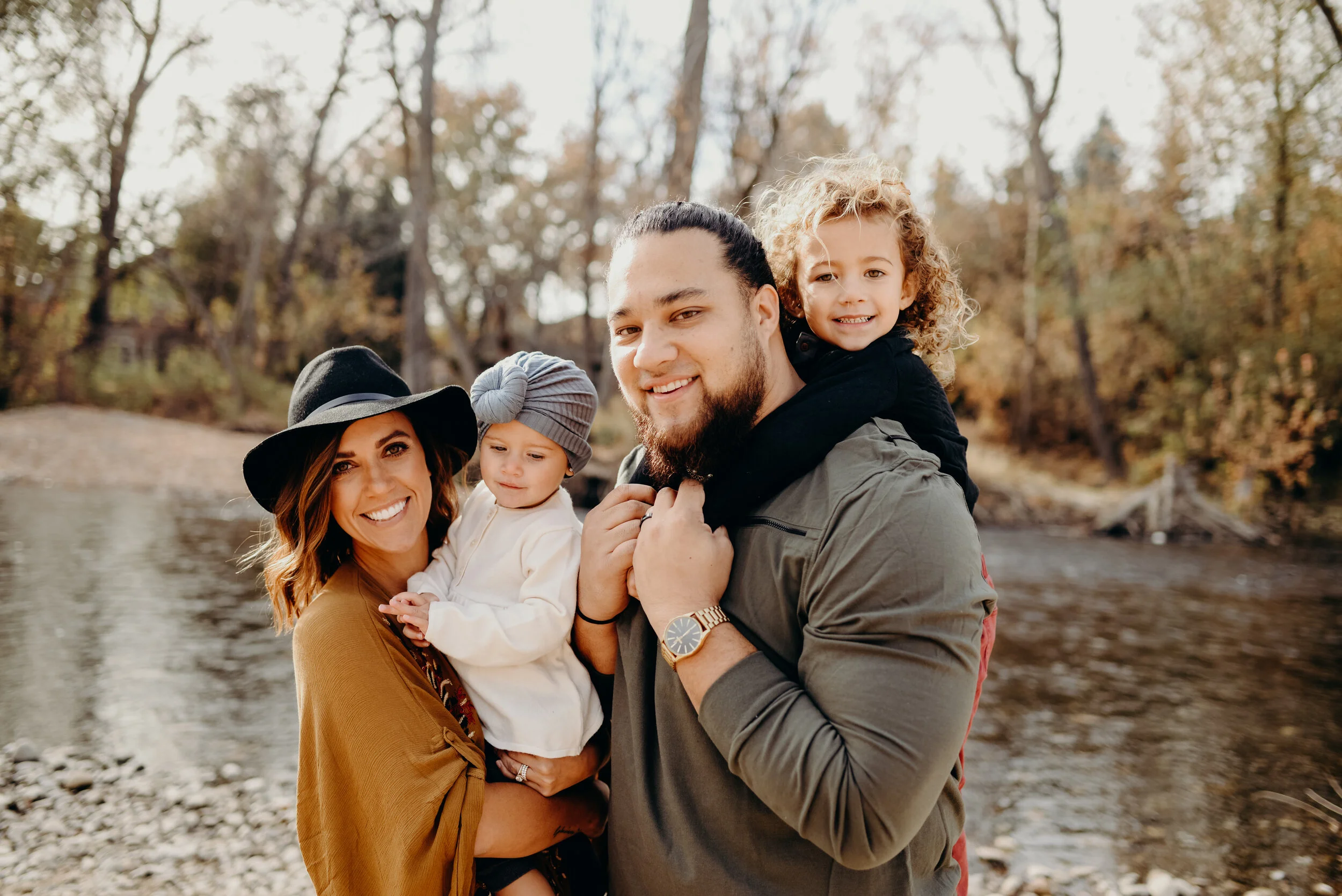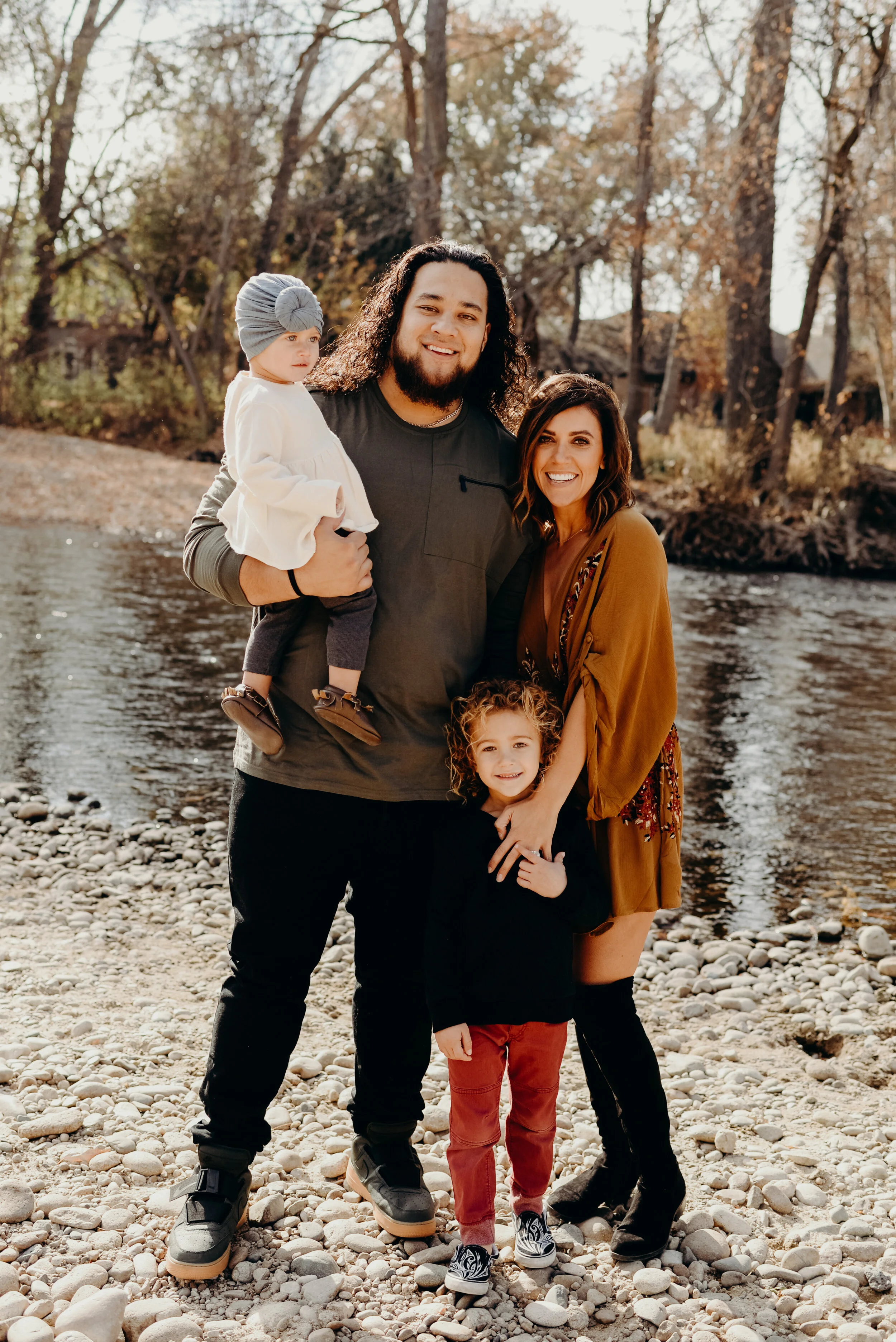The Power of Sensitivity
Do you feel emotions intensely? Struggle thinking/speaking on the spot? Feel affected by loud sounds/smells/etc? Maybe you know someone who does/is.
I am on a crusade. My cause? To rebrand sensitivity. I aim to spotlight how being sensitive benefits ourselves, others, and the whole wide world. Let's make "You're so sensitive" a compliment, not an insult.
In this episode, I explain what it means to be a highly-sensitive person, and how that’s reflected in our physiology. I reference fascinating studies showing it’s not just nature vs. nature: we were born this way, baby! I share a short quiz to guide you in assessing if you/people you know could qualify as highly sensitive.
I offer new ways of viewing highly-sensitive people, some [all?] of which may be a relief to you, if you’re sensitive.
Love you. Mean it.
Book referenced: Quiet: The Power of Introverts in a World That Can’t Stop Talking by Susan Cain (HIGHLY RECOMMEND everyone read this - not just if you’re sensitive)
Connect with me on Facebook and Instagram @the_nativist
Losing Faith: Leaving the Mormon Church
It’s here. Finally.
I share my story on joining - then leaving - the Latter-Day-Saint (Mormon) Church, and how I feel about it now. I offer questions to consider, no matter your personal beliefs.
I hope you listen - and live - with open eyes, open hearts, and open minds.
I love you.
The Brené Brown podcast episode I reference is from April 20 and April 27 (it’s a two-parter): Brené Brown with Father Richard Rohr on Spirituality, Certitude, and Infinite Love, Part 1 and 2
Connect with me on Facebook and Instagram: @the_nativist
A Match for Your Mountain
Suddenly being told to rush your “healthy” baby to the ER because those seemingly minor symptoms actually reveal a serious, lifelong condition would unnerve virtually any parent, especially if you’re a first timer.
Roman Ternus is one special girl in her own special way (you’ll see what I mean in the intro). She sparkles, she dazzles, she charms, and she inspires. She is full of life and light, undeterred by life’s curvies thrown her way. Diagnosed with Type 1 diabetes (T1D) at only one year old, Romey learned early on how to roll with the punches. Romey and her equally lovable and inspirational mother, Jeminee, share their climb.
By listening to this episode, you’ll get even more than just a cute, motivating story from a cute, motivating girl. There are many important messages in here: accepting and re-framing life’s challenges; recognizing and leveraging your inner strength; embracing and cultivating your partnerships; accessing and channeling bravery; and respecting and heeding your intuition. You’ll also hear important signs to look for to detect T1D.
Jeminee tells us her initial thoughts and reactions, and how she sustains her strength and gratitude through the demands of caring for a child with T1D.
This episode is a story of resilience, of hope, of hope, and of gratitude, and it serves as a powerful reminder YOU are a match for YOUR mountain.
Below is the full video to the audio snippet you’ll hear in the episode’s intro (so you can really see little Romey shine!). Find this and more on Jeminee’s Instagram page: @jemified_
Thank you for listening. Thank you for caring.
-w-
Lead Laugh Love
Leadership. It’s often glorified and discussed, often regarding a formal role, position, or status. How reductive and limiting.
No matter what organization you’re part of, or group you belong to, or title you have/lack - YOU are and can be a leader - at the very least, the leader of your own dang life.
In this episode, I highlight various ways we can lead from where we stand, no matter who we are or what we do (some will likely surprise you). I outline subtle and overt ways we can directly/indirectly influence those around us and the world at large.
I suggest ways to empower yourself and take control of your life, to live it on your own terms.
We’re all leaders. This isn’t saying we all deserve trophies and can phone it in. No, it really is about the different ways we can each lead - from where we individually stand. It’s about trying, doing your best, reclaiming your power, taking responsibility and owning your life.
Lead on.
-w-
Find me on Facebook and Instagram (@the_nativist)
Indigenous Voices Series Part 1
In a world of worthy causes, the indigenous voice is often drowned out. This series aims to illuminate it.
If you're interested at all in being a more informed and respectful human, this is a goldmine. Elise Blaser returns to share with us her indigenous perspective from a cultural, historical, and personal standpoint. She tells us about growing up in both Canada and the US while having both native and Caucasian blood. She outlines common disparities and misconceptions surrounding indigenous culture and people, and ways in which we could unwittingly be disrespecting those cultures (some may surprise you!). She highlights her favorite cultural aspects, and how non-natives can partake without disrespecting. We reference the @illuminative Instagram post (see below) distinguishing between appreciation and appropriation, citing concrete guidelines and frequently asked questions (like if it's okay to wear moccasins or smudge).
Rather than preachy and critical, this conversation is lighthearted yet deep, educational yet engaging, and fun yet reverent. And critically important.
You can find Elise on Instagram @eliselilaa
Illuminatives
Instagram post from March 31, 2021
Taking Accountability and Regulating Our Emotions
This post (and it’s corresponding podcast episode) is per request - and is also actually a specific topic I’ve really wanted to tackle.
Today we’re talking about taking accountability for our actions, and for regulating our emotions.
And as you’ll soon see, there is so.much. to cover here. It’s good stuff, so let’s dive in.
Below, you’ll find a transcription to this episode, so you have the option to read/listen!
You might’ve heard it’s not what hand we’re dealt - it’s what we do with it. We’re not responsible for the initial hand we’re dealt, but we are responsible for how we play it. It’s on us to do something with it. (This right here is a whole other conversation about privilege, drive, luck, agency vs. destiny, etc - but we’ll stay on the surface here.)
It’s easier to blame than it is to take accountability and do the work. And sure, there are legitimate sources of blame, and legitimate challenges (trauma, etc) we’ve experienced that have caused our situation. This doesn’t discount those. Those should be acknowledged and emotionally/physically/psychologically processed, etc. Also, this is pretty nuanced and not always as simple as just willing your way through something. but at the end of the day, still, to truly heal and move forward is up to us. And sometimes (and often) moving forward comes through seeking/accepting the help and resources we need, at least to give us a solid footing. While seeking and receiving may seem passive, and may seem like offloading the responsibility - that’s just not so. They’re active approaches to healing and resolution. We can be surrounded by the best resources and help in the world, but unless we let it in - it’s useless. and the letting it in is entirely up to us.
Let’s tilt this to a slightly different angle. Let’s talk about when people do us dirty, or create the problem. I just got done with my addiction series. Part of this included the perspectives of wives of addicts. Far and away, the most effective and powerful approach and resolving factor were the wives attending to their side of the street. Did they cause the issue? No (though this can get nuanced in many cases, as there are multiple contributing factors in situations involving addiction). But what/whom we’re talking about here, no - the wives were victims here, so to speak. Are they justified in getting angry and blaming their spouse? Sure, absolutely. And it’s important to feel your feelings and express them as necessary, and to not try to good vibe your way out of it, thereby repressing emotions. All emotions serve a purpose and have value, and repressing them only delays (and often magnifies and worsens) their expression. What we resist persists. They’ll come out eventually - usually at a greater magnitude and worse moment. But these wives credit their survival and current mental wellness with working on themselves: seeking therapy, turning inward, etc. They reflected on their own issues, and how those issues were impacting the current situation, and their reactions to the current situation.
For one of the wives, this meant she ended up taking her baby and leaving her husband (which took remarkable strength and courage, considering how young she was and what little she had). Now, she’s healthy, happy, and newly married. She took ownership of herself and her situation. Often, these tough times are gifts because they reveal what isn’t working, and (sometimes forcefully) nudge us into facing and handling that. One of the wives stayed with her husband, and he credits her individual self work for his sobriety. He told me his wife’s “working on herself” was the best thing she could have done because I noticed and wanted to be better as well, which was a huge factor [in] why. I tried to give up alcohol many times before, and when she was finally healed enough to leave, I became strong enough to quit.”
And that’s important to note too: Our actions have ripple effects. We have the power to inspire and uplift others. When we take care of ourselves, that radiates to those around us, and affects the world. When we rise, we can take others with us. Not that that should necessarily be our reason why, but it’s a beautiful secondary motive.
Now let’s talk about when someone says/does something that pisses us off. Bums us out. Triggers us in any way. We often hear (and might even have said): “You made me so mad.” “You hurt my feelings.” “You made me ____ (fill in the blank).” In reality…they’re the stimuli - and how we react to that stimulus is ultimately up to us. As in any scientific experiment, the stimulus is different from the reaction. Different forces. Different entities. And so it is here. Our reaction is and should be separate from what stimulated it.
You might’ve heard the quote by US First Lady Eleanor Roosevelt, “No one can make you feel inferior without your consent.” To give more context to this, Eleanor was responding to reporters’ questions regarding an awkward event in 1935. The Secretary of Labor in the Roosevelt administration was invited to speak at the University of California, Berkeley on the Charter Day of the school. The customary host of the event was unhappy because she felt the chosen speaker should not have been a political figure. She refused to serve as host, and several newspaper commentators deemed her action as a rebuff and an insult. Eleanor was asked at a White House press conference whether the Secretary had been snubbed. “A snub” defined the first lady, “is the effort of a person who feels superior to make someone else feel inferior. To do so, he has to find someone who can be made to feel inferior.”
Another analogy that comes to mind for me is the stimulus (the word/action) is the seed and we are the soil. Whether that soil is fertile (for offense, reactivity, etc) or infertile (repellant to offense) is up to us. And there are quite a few contributing factors to our soil’s fertility, or lack thereof. A reaction is not predetermined and is not automatic. There is space between the stimulus and the reaction. Within that space, power is transferred from the stimulator to the receptor. In the space, we as the receiver get to determine (however consciously and intentionally is up to us) our response.
Here’s where it gets tricky: sometimes that response is hijacked by our subconscious. Our fears and insecurities override our logic, our reasoning, our values, our best intentions. Perhaps our unhealed trauma wounds are triggered, and those are POWERFUL, especially if incurred during our formative years in childhood. We largely and often can’t control if/when we experience trauma, to whatever degree it is. I am in no way victim blaming here - ABSOLUTELY NOT. But for us to extricate ourselves from its chains that strive to control our lives - we must first recognize, and then own it. And this comes through shadow work. Through introspection. Through facing ourselves. Through digging in and getting honest. This process is typically helped by professionals, and trusted loved ones (especially if the trauma is significant). They can illuminate our blind spots, maintain objectivity, and maintain necessary and beneficial objective distance. Even with their help, though, we’re still responsible for doing the work.
As you’ve likely figured out by now, what happens in our formative years affects us today. One of the best ways to get to know someone is to ask them about their childhood. I personally had a fantastic childhood with wonderful, loving, involved parents. However, like virtually everybody else, I still have my stuff. I still have triggers and hangups I’ve had to work through. It’s not always necessarily a reflection of the efficacy and love of your caregivers. None of us make it through life without some wounds. Sometimes, they’re just surface scratches, merely getting our brief attention. Sometimes, they’re bone deep, and if we don’t properly treat them, they worsen and become infected, and that infection spreads, affecting what’s nearby.
For me personally, I would often feel unseen and unheard. As part of this, I also outsourced my validation, and was very reactive. Reactivity is a sign of poor self-emotional regulation. If our moods and our actions and our words depend upon people/situations outside of us, we’ve ceded our power. We’ve ceded our calm and our happiness. We’ve ceded our stability. Only when we can practice that pause, to grant us space between what happened, and how we will handle what happened, will we be empowered. When we respond, rather than react, we feel better and do better. Part of this is recognizing the separation of the stimuli, our thoughts, and our actual core self. If we maintain this distance, we can ascertain when our fears are trying to hijack, when our insecurities are trying to cloud. Otherwise, we’re tossed around by the ever-changing winds, at the mercy of situations and people.
I can tell you from personal experience what a freeing feeling it is to reclaim your power and maintain that calm in the storm. It feels better for you, it feels better for others. Our actions have ripple effects. We don’t live in a vacuum. So you can imagine the compound effect of reactives interacting with other reactives. No wonder we have the division and discord in our world: in relationships, in communities, in business, in politics, in friendships, in religion. We can be powerful catalysts for change, on a micro and macro level, simply by learning to regulate our emotions. Defusing situations by remaining grounded and aware.
Self awareness is key, and not everyone is fully self aware. We’re all at different parts of our journey, to put it euphemistically. In a recent relationship, I saw firsthand - from the other side - how destructive poor emotional self-regulation can be.
A little bit of a back story. Codependency can manifest in various ways. I was codependent in the sense I was a “fixer” and derived my sense of value and worth from fixing, from accommodating, and from caretaking. This is good to an extent, but not in excess, and not to the point of self abandonment. Neither wins when only one set of needs/wants is being met. In a way, I was using that “fixing” and self-denying to regulate my emotions: to feel needed, to feel valuable, to feel desirable, to feel in control, to feel indispensable.
On the other side was my boyfriend, who was codependent in the sense he wholly depended upon externalities to determine his mood, sense of self worth, and identity. I know why he was the way he was (family dynamics in the formative years for the win). I empathize and feel for him. Even so, it was tough to experience. For BOTH of us. Frustration abounded on both sides.
On my side, I’d feel enormous pressure to accommodate his insatiable need for validation. A simple compliment wasn’t enough. Nope. Each one needed to be multi-sentenced, deep, fresh, nuanced, and heavy-hitting. Every single one. Multiply this by 15 or so - A DAY. It was exhausting - which is ironic, because genuine, heartfelt, customized acknowledgements and compliments are my thing. But this just felt forced, and pressured, and required. Don’t get me wrong, he gave what he expected. He could be the king of compliments. But it all felt so heavy. For someone who loves swimming in the depths, pretty soon I was gasping for air.
If we didn’t have the exact same opinion, he’d take it as a personal attack. A condemnation of his taste, his character, his judgment. He wouldn’t directly communicate this - because he needed external harmony for his internal peace. So nothing ever truly got resolved. He’d say one thing and mean another. Not because he was trying to deceive or lie or put one over on me. He was trying to fulfill his idea of what a perfect boyfriend, a perfect son, a perfect citizen, and a perfect employee would do/say, whether or not that reflected his truth. He NEEDED people to view him a certain way because he needed their approval for his own. Their validation of him translated to his validation of him. He didn’t dare to let his true feelings and self show, for fear those would be judged, condemned, discounted, dismissed, and found lacking. (I think many of us can relate to that - humans have worn masks long before COVID-19.) Therefore, he wasn’t truly expressing himself. We could never truly connect, because connection requires authenticity.
He had an internal script he needed the world and its people to follow for him to maintain peace and happiness. As a fellow world dweller, I’m sure you know by now, the world obeys NO script. If we have a script, it laughs and flips the middle finger. Life happens. And people have agency and their own wants/needs/fears/problems/objectives. We’re all just muddling around together. Sometimes those factors align, and often they clash. C’est la vie. We can’t control others - only ourselves. And that right there underscores the importance of learning how to regulate ourselves, and not cede this power to others.
Though he never communicated the content of his script, I’d sense it. And just like I loathe others telling me what to do, this was no different. Not a recipe for romantic bliss. I felt exhausted and resentful for all he required of me, and he felt unfulfilled and unsupported. My resentment would grow, and his frustration would increase. I remember one particular argument wherein he criticized me for “making” him feel and react a certain way. I pushed back, cited Eleanor Roosevelt, and asserted no one can “make” us feel anything - our response is up to us. He clearly let me know he did not agree.
As with anything else, this is nuanced. It’s not as easy as just emotionally distancing ourselves from anyone or anything with which we interact. There’s actual value in being affected by situations and people. It’s an integral part of empathy, and connection, and progress. Feeling inspired by a friend’s win, feeling gutted by a community tragedy, feeling uplifted by a stranger’s remark.
What we’re talking about here is the RESPONSE, not the initial reaction - both internally and externally. Knowing our worth doesn’t fluctuate - it’s constant and it’s real - whether or not you/others see it at any given time. It doesn’t depend on what you do, what you say, what you believe, what you achieve, what you look like.
Really, any time we’re triggered, fear is the underlying emotion. Fear of physical/emotional pain. Fear of not having enough to meet our physical/emotional needs (prompting a scarcity mindset). Fear of the unknown and how it could affect our current wellbeing (nurturing xenophobia). Fear of being deemed inadequate (causing shame).
So let’s think about shame. Shame is what happens when we view ourselves through others’ eyes. What if you removed that filter? What if instead you asked yourself - and only yourself - if you’re okay with that action/characteristic/thought? If it/they align with your values, or if they contribute to the kind of person you want to be, or if they harm others? If your opinion was the only one that mattered, are you okay with the person you are? With what you’ve done and how you did it? With what you do and how you do it? With who you are? When you think of your ideal self, is that conceived by you or others? Are you able to separate others’ views/expectations from your own?
It’s not your job to like me. It is my job to like me. And vice versa. You’re not obligated to like me, and I’m not obligated to try to get you to like me. And vice versa. It’s not your job to scale my walls to give me love. It’s my job to open myself up to receive love (all kinds of love: familial/romantic/platonic). And vice versa. This opening to allow love comes from shadow work, self reflection, self awareness, self development, self acceptance, and self love. All inside jobs.
People can be fickle and mercurial. They can be blinded by their own fears/insecurities/distractions. They have their own stresses and worries. They can get hung up on certain surface characteristics, certain defensive mannerisms, certain societal detractors, certain psychological disruptors (in themselves/others). We don’t always clearly see others (because we often don’t clearly see ourselves!). Many are simply reacting, rather than responding. And then others react to those reactions, and so on. Dominoes action. Chaos, right?
But we can do our part to mitigate and lessen that chaos - by taking responsibility and being accountable for ourselves, and our responses.
Two concepts that changed my life are: impermanence and subjectivity. Before, if I got rejected for a team, or an opportunity, or a _______ (personally/professionally), I’d accept and internalize defeat. View that “ruling” as final and binding. Not anymore.
Now I accept “defeat,” sure - but I keep it contained and in its appropriate context. I don’t view it as an attack on my worth, identity, or ability. I accept it and move on - either in further pursuit of that same objective (if that’s what I truly want) or another (if I choose to redirect). I use the feedback to adjust and improve if necessary.
I also recognize it’s all subjective: others’ personal/professional opinions of me. No matter how accomplished or experienced or cool they are. Humans can do miraculous feats (learn new skills, master existing skills, etc) when properly motivated. We all have so much power and potential - independent of others’ opinions. Another’s recognition of this and acceptance of us doesn’t diminish this.
Let’s not outsource our acceptance, our validation, and our happiness.
And sometimes others will hold us accountable, as they should. This can be uncomfortable at best, and infuriating at worst, especially when it comes to our unconscious biases, especially regarding racism and sexism. We all have blind spots. We all have biases - they’re a cognitive requirement of being human. But rather than getting triggered, let’s filter those accountability call outs through that pause between stimulus and response. Let’s examine if and why it resonates with us. Let’s examine if and why it angers us. Let’s examine if and why it saddens us. Let’s analyze it as objectively as we can (we’ll never achieve full objectivity, but shooting high helps elevate our landing spot).
And while we’re at it, this is a solid and key practice for every other situation in life. If we find we’re triggered by someone/something, it’s incumbent upon us to delve in and identify why, instead of offloading onto the offender and others to regulate our emotions and to adjust to our “script” (sound familiar?). If we don’t want others to do that to us, why would we expect them to allow us to do it to them? For example, if we see a scantily-clad woman feeling herself and posting a selfie, and we feel disgust - that has NOTHING to do with that woman or her actions, and everything to do with our response to it. What’s driving our disgust? Envy of her confidence and audacity to shatter the shackles of society and its [fickle] beauty/decorum standards? Envious because we ourselves don’t dare to do so? Insecurity with our own body? Moral indignation she is dressing immodestly and not respecting our belief system?
This doesn’t mean we accept responsibility and blame for everything that happens. Not at all. It simply means we can only control ourselves, and for our own health, wellbeing, stability, and happiness, we have to take ownership of ourselves. This is so we can lessen our reactivity and triggers. And this doesn’t mean we must always remain stoic and reserved and nice. NOPE. We’re humans. And sometimes strong situations call for strong responses.
And you may have heard me speak repeatedly on the importance of boundaries. They are PARAMOUNT to our individual and collective health, wellbeing, and success. IMPERATIVE, y’all. They allow us to set boundaries without being consumed and leveled by guilt and people-pleasing instincts (thereby saving our precious bandwidth for what truly counts and preventing suffocating resentment when we’re maxed out and not acknowledged by those we’re pleasing). They also allow us to respect when others set boundaries with us (because none of us are perfect, remember? Nor omniscient). Boundaries are for our individual and collective good. They allow us to reserve our time and energy for what we need to focus on, thereby helping us be more compassionate, less depleted, more fulfilled, and more effective.
The Internet has a wellspring of self-regulation options and guidance. Here are a few tips:
Acceptance and curiosity. First step, accept. ALL of our emotions are messengers, conveying valuable info we can use to improve our understanding of ourselves, the situation, and possible solutions. And by staying curious, this eases the weight of the feeling(s). It infuses it with wonder, which makes it more enjoyable, and motivates us to explore further (thereby hopefully preventing - or at least reducing - future occurrences). It also shifts the focus from problem to possibilities, from misery to musing, from suffering to solution.
Regulation over repression. Like we said before, what we resist, persists. Repression just kicks the ball down the road, and facilitates festering.
Identify your feelings. As Daniel Goleman, PhD and two-time Pulitzer Prize-nominated author and science journalist advises, recognizing and naming your emotion arrests the progress of the “negative” feelings. When you feel yourself getting angry, simply saying, “I’m getting upset” shifts the energy from your emotional center to your verbal cortex. BOOM. Life hack.
Keep a mood journal. This will help with venting, with recognizing triggers and patterns, and with illuminating blind spots.
Seek insight from a professional or trusted loved one. Therapy is a yes for EVERYONE - whether you feel you need it or not. They can listen objectively, provide perspectives to consider, and give guidance on effectively reframing and navigating it all. But if you’re not jazzed about that - for personal or financial reasons - a trusted individual can also offer valuable feedback on aspects about yourself/situation, and illuminate blind spots.
Allow yourself space - literally and figuratively. This is important. Sometimes situations demand immediate attention/action - in which case deep breathing is key - but otherwise, time and space to collect your thoughts and connect to yourself can make all the difference, both in how you feel and how you respond.
Breathe. Breathing is shockingly simple yet astoundingly effective. Whether you want it to or not, breathing deeply activates your parasympathetic nervous system. This signals your brain to tell the anxious part you're safe and don't need to fight, flee, or freeze. Deep breathing gets more oxygen to the thinking brain, so you’re able to respond more effectively and feel better doing it. There are various methods: box breathing (eg inhale 5 seconds-hold 5-exhale 5-hold 5 and repeat); inhale 4 seconds-hold 7-exhale 8 and repeat; and simply exhaling longer than you inhale - for as many rounds as any of these take to feel more relaxed.
In summary:
It’s up to us to regulate our emotions. It’s not on others to make us feel happy, or soothed, or comforted, or calm. Others don’t make us mad, or sad, or frustrated.
That’s on us. They supply the stimulus, we provide the response.
Sometimes those are knee-jerk reactions. Sometimes mental health issues/trauma/patterned thinking and behavior/fear/stress/insecurities drive those reactions.
Sometimes we can override them.
That’s why self awareness is crucial to empower us to respond, not just react.
Fragility is when we’re owned by the stimulus.
Like Viktor Frankl, the Austrian neurologist, psychiatrist, philosopher, author, and Holocaust survivor says: “Between stimulus and response there is a space. In that space is our power to choose our response. In our response lies our growth and our freedom.”
Addiction Series Part 1: My Spouse Was Addicted to Porn
This series has been a desire of mine for awhile now.
Though widespread, addiction is still stigmatized, hushed, shamed, and (I feel) generally misunderstood.
But it affects all of us (whether you realize it or not) directly and indirectly. So let’s talk about it.
Dr. Gabor Maté, MD, is known for his unique perspective on addiction, child development and trauma, and how this stress manifests in the body, and he has written several related books. While on The Goop Podcast (episode from 3/26/2019 titled How Does Childhood Stress Manifest in Adulthood?), Dr. Maté provided a nutshell definition:
”Addiction is manifested in any behavior in which a person finds temporary relief and pleasure and therefore craves, but suffers negative consequences as a result of, and cannot give up despite negative consequences.”
It could be addiction to pornography, sex, food, relationships, video gaming…or even to work and profit.
Dr. Maté notes when he gives this talk to any group of 800-1000 people and asks how many present by that definition have an addiction, virtually everyone will raise their hand.
Wow. Think about that.
Most of us are addicted to something (whether we realize/acknowledge it or not).
Dr. Maté continues on to remark on how we judge those with addictions of which we don’t approve. We’ve arbitrarily decided which addictions are respectable and which are not. For example: We judge heroin addicts more than cigarette smokers, which is interesting because from a health standpoint, cigarettes are worse for you than heroin (unless you overdose on heroin).
There are multiple manifestations, experiences, and contributing factors regarding addiction. This series is to normalize this conversation. To offer various perspectives and angles, from addicts and from those who love them. These views/experiences may differ from your own. Good. I hope so.
This is part of The Nativist’s broader purpose of sharing stories and views, to connect to ourselves and others; to nurture empathy and inspire us to look outside our personal experience and perspective, so we may learn, grow, understand, and live more fully.
In this episode, Reagan Garrett candidly shares her story of having a spouse addicted to porn. As a new mom and wife at the tender age of 17, Reagan tells us how she discovered the addiction, and what she did with that information. She speaks on her initial and subsequent reactions, her thoughts, her coping methods, her recommendations, and her current views on the matter.
She inspires me.
(Please excuse the poor audio quality on this episode. It’s worth it.)
If you’d like to connect with Reagan to share/relate to your own experience, you may find her on Instagram @reagang_
THANK YOU for caring. This matters.
As You Please
This is one of those conversations that could completely transform how you view and live life. How you show up in the world. How you FEEL.
I’m not exaggerating. This is a deep, profound, and universally relevant topic that I’ve felt increasingly pulled to explore - both on here and in my own life. This matters. It affects our relationships, our body image, our self esteem, our interactions, our life experiences. It affects everything and everyone.
And if you start listening and feel unsettled…that’s a key message in itself, something to unpack and examine. I encourage you to honor yourself and your needs, while also encouraging you to open your mind and expand past any possible fear or shame.
This actually covers a variety of significant topics to which we can almost all relate, and it was a true pleasure to tackle it with the wise and radiant Rachel Klein. In addition to the main discussion, Rachel offers her thoughts and journey on aligned and embodied living. She shares how personal tragedy fully awakened her to the fragility of life, inspiring her to quit a corporate job and move west.
This episode has the power to revolutionize your relationships - with yourself and others.
NOTE: This content is intended for mature audiences.
If you’re interested in following/working with Rachel, you can connect with her on Instagram: @mssweetpea
Resources mentioned:
True Sex and Wild Love podcast
Discrimination Series Part 3: Respect
In this third installment of my series on discrimination, I sit down with one of my best amigas, Cheli Brubaker.
I’ve always admired Cheli’s openness and acceptance of others. To know her is to adore her. Cheli is a first-generation American of West Indian descent, as her parents migrated here from the Caribbean. Cheli shares her experience living in predominantly white communities (particularly sheltered, conservative communities) as a youth and as part of a biracial couple.
Though she and I know each other well, I was intrigued to hear her views on race relations. She and I discuss using labels, taking accountability, commanding respect, reciprocating support, and reserving judgment.
It’s a thought provoker.
You can find Cheli on Instagram @chelitb or on Facebook under Cheli Brubaker
Cheli sporting her Nativist tee: open eyes, open minds, open hearts
Discrimination Series Part 2: Listening and Learning
In the second episode exploring discrimination, I talk with Akilah Lacey, a police officer who offers a unique and valuable perspective on his experiences and outlook on discrimination as a law enforcement officer and member of a biracial marriage in a predominantly white, conservative community.
Akilah describes what it was like transitioning from Watts to Orange County to Pocatello, Idaho, and how he bridges the gap while straddling two worlds in this current charged climate. We discuss the importance of awareness, perspective, open mindedness, communication, and empathy. We highlight the importance of listening to learn and understand, and the necessity of taking accountability for our actions.
Discrimination Series Part 1:
It’s generally accepted that discrimination exists. We may disagree on on how/where/when/why discrimination manifests, but people for the most part acknowledge it’s there. Many are recently awakening to how deep and prevalent it is.
It is not enough to be non-discriminatory. We must be anti-discriminatory.
I for one know I could step it up. Yes, I’m acutely aware - and have been for essentially my whole life - of pervasive and persistent racism and discrimination. Yes, I continually research and educate myself on the topic. Seek perspectives. Self reflect and ask myself hard questions. Consider the micro and macro pictures/factors. Express outrage and disgust when talking to others. But if I’m honest with myself…that’s the bare minimum. I can - and will - do more. This is me trying to pull my weight.
It’s not enough to be privately anti-racist/sexist/etc. Clearly, that hasn’t moved the needle enough. We must be publicly and actively so. If you’re unsure of how to go about that, you’re in the right place. Come with me as we dive into this, by asking questions, considering views, sharing resources, and assessing possibilities. Follow along on this account/my blog/podcast. Human power. ✊✊🏻✊🏼✊🏽✊🏾✊🏿
Self Love
This is another episode per request. Though it’s a topic that’s often discussed…it’s still just as relevant and necessary.
And let’s be straight: Self love isn’t always about massages and candlelit baths. Sometimes it’s about tough love. Digging in and doing shadow work. Calling yourself on your bullshit. Identifying and eliminating your toxic habits. As with everything in life, balance is crucial and boundaries aren’t just to apply to other people. They’re not just interpersonal - they should be intrapersonal as well.
I talk about how self love looks like:
Recognizing and releasing toxicity - yours and others’
Connecting to yourself
Honoring your basic needs: emotional, physical, mental
Communicating directly and authentically, and letting others do the same (without overanalyzing and assuming people hate you/are mad at you)
Apologizing only for things within your control
Setting boundaries
Asking for what you want/need
Daring to say yes, and daring to say no
Feeling and navigating your emotions
Releasing what you can’t control, and prioritizing what you can
Treating yourself and others with grace and kindness
I hope you find value in this. And I hope you love yourself. Because I sure as hell do.
-w-
Do Your Best and Forget the Rest
Who do you call when anxiety levels are rising and people are feeling more uneasy than ever? Even the Ghostbusters would tell you to call the Social Ninjas!
Though my two guests, Kyle and Jeremy, topically focus on social anxiety, this episode applies to all types of anxiety, let’s be real - life in general!
If you’re seeking something to ground you and help you reframe your current situation…this is it. This is for YOU.
You can listen to The Social Ninjas Podcast on all podcast platforms and follow them on Instagram @the_social_ninjas
You can find Kyle on Instagram @social_anxiety_kyle and Jeremy @jeremytalkstostrangers
Straight Talk
In this episode, I sit down with my Greek goddess friend, Christina Purcell. Christina is a fellow creative who does photography and raises two beautiful children - much of the time alone, while her husband, Michael Purcell, is off playing professional football for the Denver Broncos.
We cover the bases with this conversation, talking about everything from motherhood to business to LIFE. Christina also shares her experience as an NFL wife, with all the uncertainty, juggling, and shuffling that brings (let’s just say - much respect!).
Christina is a straight talker with a huge heart, and you’ll see why I adore her.
You can find her on Instagram at @capturedbychristina
xx,
-w-
Releasing Judgment
This year, I again had the honor of speaking at The Women’s Networking Group monthly gathering, founded by my good friend (and previous pod guest) Brianne Sloan.
Last time, I spoke on boundaries (you can listen on episode 8 posted 02/03/2019). This time, I spoke on releasing judgment.
What a relevant topic, huh? One that applies to ALL of us. Truly. Whether we’re judging or being judged - it’s our reality. This episode isn’t about shaming yourself/others for judging, nor is it about eliminating judgment entirely. Let’s be kind to ourselves, and let’s be real with ourselves. My objective with this episode is to explain why judgment happens, and to offer different ways of viewing yourself and others - all to inspire understanding, compassion, and acceptance. Only by understanding judgment can we transcend it and reclaim our power from it.
Thank you for listening.
Owning Your Shine
This episode features a recent amiga I made while in Nashville last year on a girls’ trip for my birthday.
One thing that struck me about Nashville was the beautiful, friendly energy the women there emitted. They were exceptionally generous with their smiles and compliments, and my guest Jessica Dinan (and her friend, Alexis) are perfect representatives of that southern charm.
My friend Julie (whom I interviewed on episode 16) and I met Jessica and Alexis at this rad “speakeasy” in Nashville. Get this: to access this place, you knock on the side door in a dark alley, and then wait for a guy to let you in (one person/group at a time). Upon entering, you’re greeted with dim lighting and a cool, artistic vibe. You wait in a lounge area until someone comes and chats with you, asking you questions and getting to know you, to create an artisan cocktail tailored to your tastes and personality (he nailed it, btw - fresh and spicy, just like I like it!).
We ended up sitting next to Jessica and Alexis and forming a fast, easy connection, bonding over girl power and good vibes, and celebrating each other’s accomplishments.
Of course we all became Instagram buds, through which we stay connected, and I was psyched when Jessica agreed to come on the pod.
In this episode, we chat about owning your shine. Clapping for others AND yourself. Realizing there’s plenty to go around. Jessica shares how ambition, action, resilience, and hard work yielded professional and personal success.
It’s a fun, refreshing, empowering conversation.
xx,
-w-
